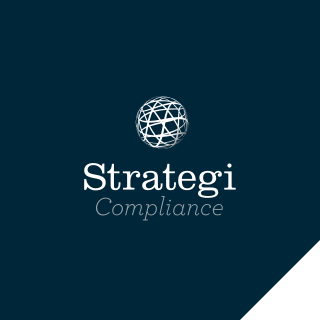The conference was held on the 7th and 8th of November and the theme was ‘The Changing Landscape of Financial Crime – in NZ and Globally ’.
| FIU = Financial Intelligence Unit (run by NZ Police).ACAMS = Association of Certified Anti-Money Laundering Specialists. |
In this article Royden covers key insights from the three AML/CFT Supervisors. If you are a reporting entity (RE), reading this will quickly help you understand what the Supervisors are most concerned about and where they are focusing their attention. This is essential information to figure out what steps you need to take as you plan for 2024, making sure your business aligns with the regulatory expectations.
The conference included domestic and international speakers and there were some interesting topics and insights which we will tell you about in the next newsletter. For now, here is what you need to know from the AML/CFT Supervisors:
Department of Internal Affairs (DIA)
The DIA said they will be taking a targeted and intelligence led approach to supervising their REs. This means that they will be taking note of red flag behaviour exhibited by REs e.g., late filing of annual reports and repeat findings in audit reports.
They have the following priorities:
- Implement the recommendations from the FATF Recommendations (November 2023) report. This report sets the international standards on combating money laundering and the financing of terrorism proliferation.
- Continue to use thematic reviews to improve overall compliance.
- Spotlight on high-risk industries e.g., casinos, trust and company providers and Virtual Asset Service Providers (VASPS).
The main areas of non-compliance they found were:
- High use of templates that had not been customised.
- Poor record keeping.
- Poor understanding of what a Politically Exposed Person (PEP) is.
Financial Markets Authority (FMA)
The FMA will be doing more desk based reviews in 2024 and they will be paying particular attention to audit reviews to see what action has been taken regarding recommendations from independent auditors.
The main areas of non-compliance they found were:
- AML/CFT programmes not up to date – in particular policies, processes and controls not in place.
- No formal process in place to regularly review the REs risk assessment and programme.
- Failure to conduct Enhanced Customer Due Diligence (EDD) – in particular the source of wealth and source of funds not being recorded and no supporting documents held.
- Inadequate PEP checks.
Reserve Bank of New Zealand (RBNZ)
The RBNZ said they would be spending more time onsite during inspections so they can conduct a deeper dive. They will look at the AML culture within the business and spend more time talking to compliance officers and frontline staff.
They will be encouraging reporting entities to take a more proactive approach to cash transactions and declining transactions where a crime is suspected. They want their REs to be more aware of frauds and scams and will be reviewing sanction actions taken by banks and other REs.
Conclusion
It is clear that the Supervisors are being proactive, and they have high expectations. The key to avoiding non-compliance is having a solid understanding of requirements and having effective processes in place. If you’re grappling with these issues, Strategi is here to assist. Whether you have a quick question or need a thorough review, our expertise is at your service – reach out to us today.


